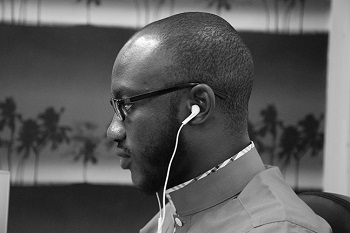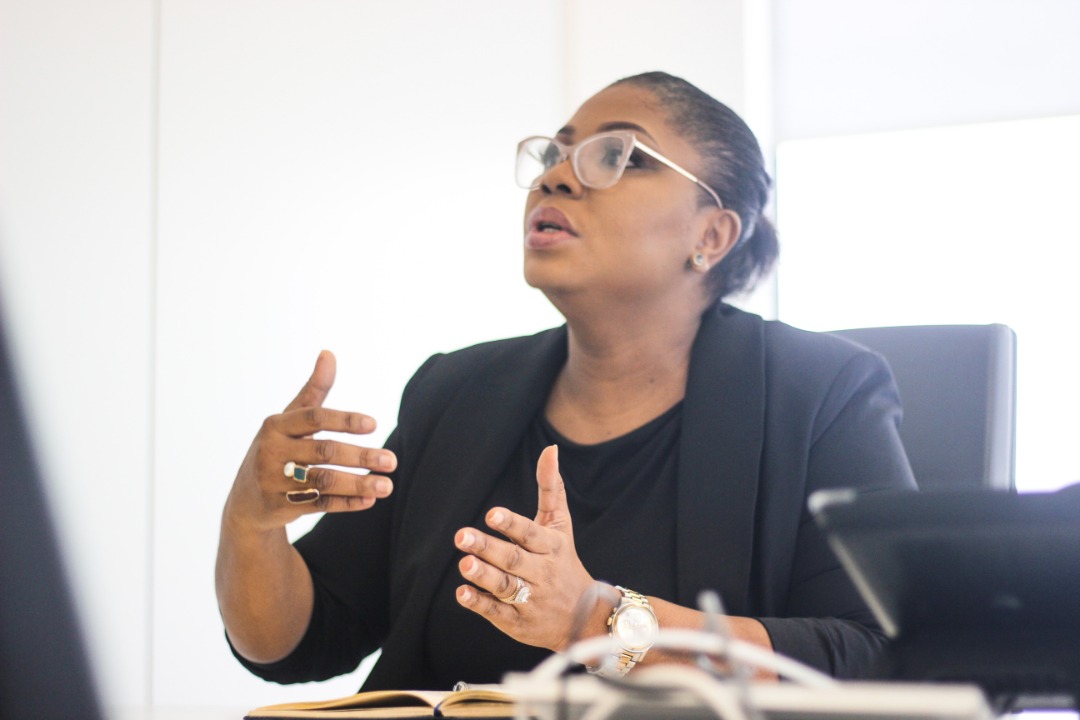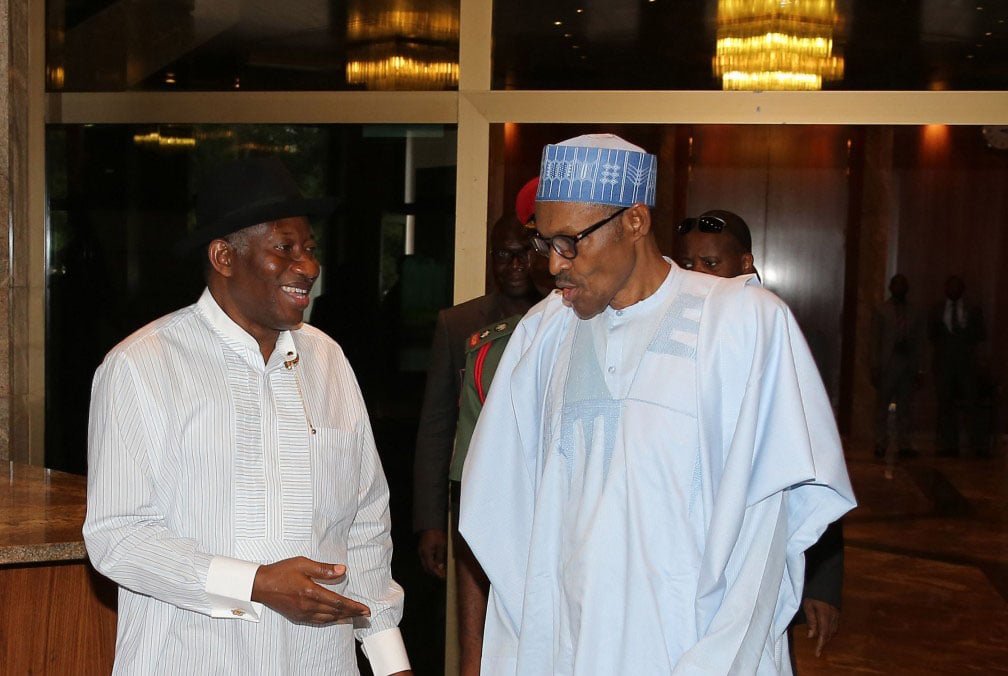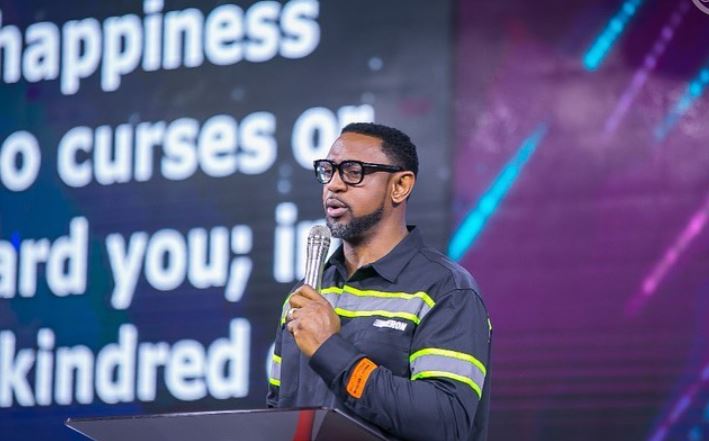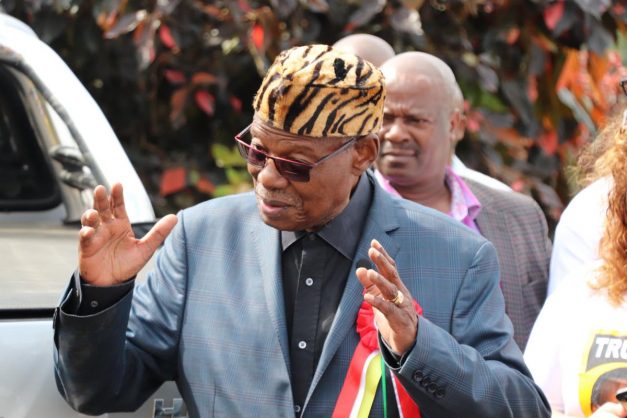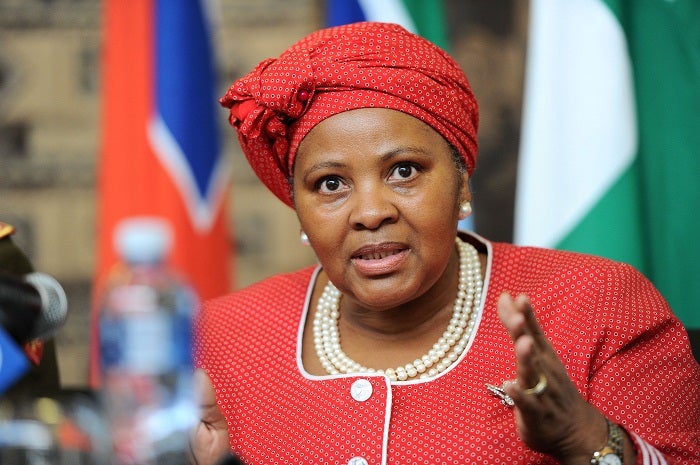Neconde is an independent Nigeria Oil and Gas company serving as a special purpose vehicle for the acquisition and development of petroleum assets. In January 2011, the company participated and emerged successful in the bid for the acquisition of 45% stake in OML 42 previously held by Shell Petroleum Development Company Limited.
Neconde’s status as an indigenous company with an excellent management team offers a viable option through which the currently underdeveloped reserves of the Niger Delta could be brought into production with attendant economic benefits for the country.
Chichi Emenike, Neconde’s head of gas business, spoke with select journalists on a wide range of issues in the gas sector ranging from gas flaring, use of technology in the industry, government policy, gas pricing and solution to the epileptic power supply the country is currently facing.
Emenike comes onboard with over two decades of experience in the Nigerian upstream, midstream, and downstream oil and gas industry. She served as a project engineer with Exxon Mobil Nigeria before moving to Vigeo oil and gas as head, operations support services and business development in 2008. Before joining Neconde, Emenike was the head of business development and commercial operations at Falcon Corporation Limited.
Advertisement
Kindly introduce yourself
My name is Chichi Emenike, the new head of gas business for Neconde. It hasn’t been that easy, I’ve actually worked my way through the ranks, I can say bravely I’ve done upstream, midstream and downstream, so I have cut across the three aspects in the industry. I started off in Exxon Mobil where I spent some time, and then moved on to a couple of other indigenous firms and then finally here. On a soft side, I am a mother to four children. I have been married for almost 20 years, so I wear different caps at different times. Sometimes I am a gas engineer, sometimes I am a gas business development person and other times I am a mother. Working in Nigeria for me has been a good one. The industry has metamorphosed and we have continued to push it. So we are beginning to see more and more Nigerian businesses which are doing better in the oil and gas sector than the (International Oil Company) IOCs who we have known over the years. Here at Neconde, I have been given the mandate to drive the gas business. Neconde has huge gas reserves. The immediate mandate is to develop and completely monetise our associated gas, which is gas that comes out of our crude activities. Then we have also got a huge non-associated gas, which is gas that we have to develop and gas that has to pay for itself, which is something that we are trying to develop as a country. So for all the gas that we are trying to develop as a nation, most of it is gas that has come out of drilling and crude activities. We don’t have gas that stands as gas for itself and that is what the nation is slowly beginning to gravitate towards to.
What do you think are the hindrances to ending gas flare in Nigeria?
Advertisement
The hindrances are somehow interconnected with things that have been talked about. First things first, gas flaring is not completely dismal as it is. Nigeria has made some progress in reducing gas flaring in the country due largely to Nigerian gas flare commercialisation programme – a platform to attract investments and develop a transparent market mechanism through a competitive procurement process for allocating gas flares. What that flare programme is seeking to do is to commercialise gas from about 178 gas flare sites all over Nigeria. And the program has been running, so investors have been coming in. The flare sites are in different areas, and there are a lot of consideration for technology and other areas.
This programme has significantly reduced the level of gas flaring to below 11% as against the 60% over 10years ago but the continuous flaring of over 700mmscf/day from about 178 sites is still a huge waste of the nation’s resources.
When you come to other areas we still have issues, then we go right back to where we started from. So we talk about policies, pricing. If we are talking of a gas flare commercialisation where we expect investors to come in and put money. What it means is that you have to allow the market to run itself. Then we need to gravitate the willing buyer, willing seller arrangement. If you don’t allow that to happens, you will see very minimal progress. What we need the government to do is to create an enabling environment.
What role is Neconde playing to ensure that there is adequate supply of gas in the country?
Advertisement
One of the first things that we have started doing is that the company has taken a focus on its reserves. What we are working towards now is a complete zero-flare situation. We have taken some of our associated gas now, we have already commercialised it as we currently have buyers. The short term plan is to also maximise on that associated gas. So we are putting in place more gas infrastructures. We have currently the Central Processing Facility (CPF), we are adding the associated gas required pipeline and so on. This requires investment even with the short term, so we look at boosting this gas production. In addition, we are also looking at the non-associated gas because that is where the main focus is.
We might also want to look at the gas pricing as it is today in Nigeria. The typical investor posture is not that you have come to reap off, but you want to invest. But there must be a clear line of sight to that money you are putting on ground. If you take a look at Africa, you have other investment destinations. You have got Ghana down the road. Ghana does not even have as much reserves as we do but they have done a lot of tidying up. So we need to get our acts together. The current government is also talking about the growth recovery plan. Those plans are hinged on moving the economy forward. What will move the economy forward is power which hinges on gas. We need to put in place cost reflective tariffs that will make sense to people investing. We need to unbundle some of these things if we are serious. We need to move the country forward.
The energy space is moving towards a cleaner environment. Crude is not your best bride now. It is slow but it is happening. So if we are serious as a country, we need to start focusing on gas. So it is not all bad news, we have done the gas policy, but you know it has a leg with the Petroleum Industry Governance Bill (PIGB) as it is. All other bills that are waiting to be passed are equally important. There is no country that is serious with its oil and gas business that doesn’t have a governing document because that is the document that serves as a framework on which we can spend and invest money.
In the last few years, we have seen that indigenous oil forms have been developing capacity to match that of IOCs especially in the area of explorations. Are there still gaps that exist?
Advertisement
I will answer this as a Nigerian. It is not in our culture to do research and development (R&D). For nations that are deliberate, they have created teams that are strategically positioned to constantly run with data and produce solutions. If you bring that into the oil and gas space, the world is changing, so you find that operations have to be safer, you have to spend less, and maximise what you are gaining. It is only imperative for any serious company to focus on R&D. For us in Neconde, it is critical, so there are many things we are doing to ensure that we maximise value for our shareholders and our lenders as the case maybe. Sometime last year, Neconde in conjunction with her partners were able to develop the alternative crude evacuation method. We have the old evacuation system but those were subjected to several cases of vandalism and attacks at any point in time. When you do that, there are humongous effects. So we developed a system called barging that gives us almost a 100% control over value chain. So to a great extent, we are getting value and we ensure that our lenders have peace so that we don’t have any down times. If you look at our E&P business, our engineers are working different models for our oil and water separation methods. R&D is very key, as a nation we need to focus on that.
The federal government has announced plans to divert some of their equity from the joint venture (JV) to fund 2019 budget. Do you think it is the right way for us to go?
Advertisement
For a nation like ours and where we are today, it would encourage us if we can get more participation from private investors who can take those assets and run with them. Some of those assets, as you realise, are assets that are referred to as marginal fields. For some of the IOCs, those are assets not in their big pictures, but a lot of indigenous firms have maximised those assets and contributed to the GDP, employment, technology and development. So if the government is looking towards doing another bid licensing run, we would encourage that.
But the country still has gas shortages in the market, what are the major problems?
Advertisement
This is something we always say all the time, so for all the gas we have talked about, most of it is trapped in the ground. We don’t have sufficient gas infrastructure, for the gas master’s plan which is the nation’s dream, this is something we started running with some years ago, and we haven’t fully optimised it yet. What we should have is a crisscross of gas pipelines all over the country. Then we have got some of the big elephants in the room, like the PIB. We have got an environment that is not clear to investors whether you are international or local, we don’t have policies that are completely clear. That is not acceptable. We have got a myriad of other issues, so for gas, you have the power sector that is something else. If we do not unbundle that power sector which happens to be one of the biggest sector that uses gas, you can’t develop the gas space. These are some of the things that have held the gas industry hostage for some years now.
How will the coming of upstream big gas projects affect Nigeria?
Advertisement
Globally, it is business. Competition remains competition. It is not a sad picture. Currently I serve on the Nigerian gas association body as a financial secretary. Even before then I had worked with smaller sub-committees and all that. It is not a gloomy picture but all we are trying to say is that we need to tidy up our act. Business is business. I was at the world gas conference last year that happened in Washington. If you see what these countries do with their gas, you wouldn’t believe that the gas came from here in Africa. They have all set of technology for stranded gas, for example the Golar LNG is like the LNG in Bonny but seating on top of a vessel, it can sail anywhere, goes offshore and then plug in like a “plug and play”. Gas is still in need worldwide but we need to take into consideration the economies, transportation, distance, and other things that come into play.
How significant is the production from your asset and what are your plans in terms of gas?
Currently, we are doing 40M (million standard cubic feet per day) MSCFD as it is. The plant is out of immediate production so this is part of associated gas, that is gas that is coming out of our current operations, but is associated with crude drilling. So the short term is to boost our associated gas production, where we take it to 80M MSCFD per day. That requires putting in place more gas infrastructures. We currently have a CPF and then it still requires additional infrastructure. In the long term, we are looking at the non-associated gas, which is gas that can sell for itself. Some of that gas we condense it. The business plan we are developing has consideration for LPG. You know we have a lot of LPGs in Nigeria but unfortunately, the capital use is so small compared to Ghana and Senegal. One of the biggest issues that we have with LPG is what I like to call the capital expenditure for the families that are required to buy the gas cylinder and all that. These are the real issues.
The LPG Nigeria uses comes from Bonny and it passes all the coastal regions where you can have possible storage and it comes to Lagos and goes all the way back to Port Harcourt and all way down to Abuja, funny schematics but it is happening. But of recent, we have got a couple indigenous firms who are trying to build assets around it for storage.
If you were to name in order of importance, what are the specific actions if you were making the policy for government, that government needs to do to unbundle this industry?
The first one for me would be the legal backing, which is the bill. We have a history as a country that runs on people. We don’t have procedures or processes. So after every four years, a new person comes in, if you don’t have legal documents that back up things you can run with, anyone can come and change it and that doesn’t give confidence to any investor. Look at what happened in the GSM industry, that is what we hope can make for gas. For me, it is the legal first, then we have to take a look at the pricing, then advocacy.
How does pricing as it stands today discourage investment?
We know the government has capped it at the price of $2.50 and the gas producers have had a running battle. OPTS (Oil Producers Trade Section) has said that the $2.50 is not working. And for those of us even in the upstream, so when you do your calculations, an entire value chain, you do production, transportation, we don’t have too much infrastructure as it is, for the little available infrastructure we have, you’ve got transmission cost to deal with and then you’ve got the LDC, the people on the distribution end, so that entire value chain have a break down along and it has to be added value for everyone at the end of the day. Because what gets to the last man has to be a pricing that can work whether that gas is going to be used for power generation, or industrialisation, it has to be a pricing that will work to the degree that will affect Nigerians at the end of the day, so the starting point is putting in place an environment that works for whoever is producing this gas.
If you were to advise the current petroleum minister for state, what do you think should be his priority?
We need to go back to putting in place laws. We need to pass our bills.
Now you are going to be tapping into the gas reserves from OML42. How does the structure currently work?
Neconde is developing OML42 currently with our JV partners. In 2011, we went through a proper bid process and the bid was awarded on a $585million basis. Ever since then, we have been developing this asset jointly with them. So we have what we call an asset management team (AMT). So jointly we look at the issues, and even for gas it is the same route that we are following.
Do you have any plan to move from OML42 and help other people that have strategic gas as well?
Maybe on a long term basis because if you look at some of the models that are ran in some places, you have what is called gas ports. If you also look at some of the gas pipeline projects that are put in place, we have the advent of the network code which is also a fallout from the gas policy. It is a code that would allow end users to be able to tie up agreements with gas producers irrespective of where you are across the country. So for Neconde, it is not in our short to medium term. Maybe on a long term, we will find out who is around where our asset is, we can come together. But the most important thing is the 3.8tcf that we have right now and we are looking how to monetise that.
What is the end game of gas production, will Nigerians rejoice
It will be a deal breaker. The gas industry is one that is very critical to the growth of the Nigerian economy. I spoke about the economic recovery group plan (ERGP). If you look at the tenets of that plan, much of it is hinged on things that are connected to the growth of the power sector which is linked to the gas industry. The government as it now is spending more on recurrent expenditure than your capital expenditure project. So the government doesn’t have too much to invest in brand new project. It will only do well to begin to encourage private sector investment and once we can get that right, what you begin to see is a traction of different levels. You will find new business coming in and more people getting employed. So the gas business is a huge value chain.
Some of the key selling point of gas is that it is clean, cheap, environmental friendly, and if you compare it to other fossil fuels like your AGO, you find out that gas gives you less downtime. It competes favourably with other fossil fuels.
When you look at the big picture sometimes, it is always easy to get discouraged. But we have to keep talking. We have to keep putting these discussions at the right tables. It is slowly moving but eventually we are getting attraction.
Your new office is managing gas business, do you see a light at the end of the tunnel in terms of Century power?
Part of the business plan for Neconde gas has one leg in Century power. Part of our non-associated gas off take is tied up to Century power plant. The plan is to eventually have a 140 megawatt station somewhere in the east, Okija. We have a site now and it is located closely to a major feeder line. However, we have also tried to break it down, so have got some short term plans for Century power and we just have to bring it to life. We are currently scoping the environment in the target area and looking at how we can bring life to some smaller power projects all on the platform of Century power. So the medium to long term plan will be to use a group company called acreage. We are also looking at the possibility of putting in place a pipeline to bring in the gas from our assets in OML42 into Anambra state for the Century power long term power project.
Add a comment
